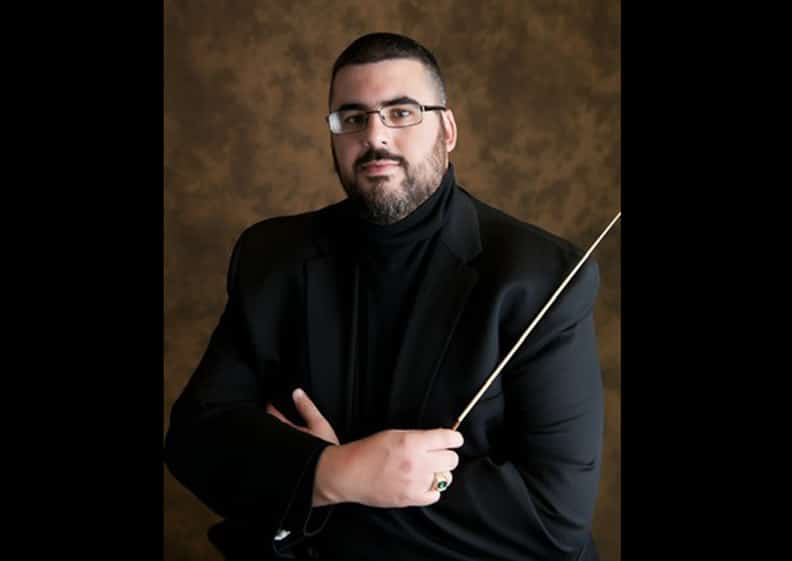Just in: Chicago cancels two debuts
mainSpare a thought for pianist Benjamin Grosvenor and conductor Fabien Gabel, who lose their Chicago debuts. See below.
The Chicago Symphony Orchestra Association (CSOA) announces that CSOA-presented concerts scheduled to take place from Wednesday, April 10, to Tuesday, April 23, are canceled or postponed due to the current strike by musicians of the Chicago Symphony Orchestra. These cancellations follow the musicians’ decision to reject the Association’s last, best and final offer for a new contract on April 8. Specific details about the Association’s offer to the CSO musicians can be found in a news release.
CSOA-presented concerts to be canceled or postponed include:
CSO All-Access Chamber concert on Wednesday, April 10, at 7:00 p.m. The free concert at Symphony Center by the CSO Chamber Players featured a program that included Bartók’s Contrasts and Messiaen’s Quartet for the End of Time.
CSO subscription concerts on Thursday, April 11, at 8:00 p.m., Friday, April 12, at 1:30 p.m. and Saturday, April 13, at 8:00 p.m. The program, which was to have been led by guest conductor Emmanuel Krivine, included Berlioz’s Roman Carnival Overture and Zemlinsky’s The Mermaid, as well as Chopin’s Piano Concerto No. 1 featuring Benjamin Grosvenor as soloist in his CSO debut. The concert featuring this program at the Krannert Center in Urbana, Ill., scheduled for Tuesday, April 16, at 7:30 p.m., is also canceled.
Symphony Center Presents Jazz concert on Friday, April 12, at 8:00 p.m., showcasing the Monterey Jazz Festival on Tour 60th Anniversary Celebration starring Cécile McLorin Salvant and featuring Melissa Aldana, Yasushi Nakamura, Bria Skonberg, Jamison Ross, and Musical Director Christian Sands.
The public and school performances of Once Upon a Symphony: The Boy and the Violin, A Brazilian folktale, on Saturday, April 13, and Monday, April 15.
Civic Chamber Music concert at Indian Boundary Park on Saturday, April 13, at 3:00 p.m.
Civic Chamber Music concert at the National Museum of Mexican Art on Sunday, April 14, at 2:00 p.m.
Symphony Center Presents Chamber concert on Sunday, April 14, at 3:00 p.m. featuring violinist Midori and pianist Jean-Yves Thibaudet. The program included violin sonatas by Schuman, Fauré, Debussy and Enescu.
The Latino Alliance 5th Anniversary Celebration scheduled for Monday, April 15, at 7:30 p.m., has been postponed to a future date to be announced. The event was to include a screening of the film Redes, as well as a performance by musicians from the Civic Orchestra of Chicago of Revueltas’ String Quartet No. 2 (Magueyes).
The Civic Orchestra of Chicago’s concert with Mocrep on Thursday, April 18, at 7:00 p.m., has been postponed to a future date to be announced.
CSO subscription concerts on Thursday, April 18, at 8:00 p.m., Friday, April 19, at 1:30 p.m., Saturday, April 20, at 8:00 p.m., and Tuesday, April 23, at 7:30 p.m. The program, which was to have been led by guest conductor Fabien Gabel in his CSO debut, included Bartók’s Dance Suite and Debussy’s Printemps, as well as Brahms’ Piano Concerto No. 2 featuring Emanuel Ax as soloist.
Civic Chamber Music concert at the Zhou B Art Center on Friday, April 19, at 8:00 p.m.
Symphony Center Presents Special concert featuring Zakir Hussain and the Masters of Percussion on Friday, April 19, at 8:00 p.m.
All associated pre-concert special events through Tuesday, April 23, are also canceled.






In time, the musicians will come to realize that their patrons, and the general public, will only be on their side for so long.
The general public was never on their side… no one in Chicago outside the classical music sphere cares about what’s going on.
Yeah right, they’ll be on the side of the CSOA . . .a group of rich freaks who don’t have to worry about
their salaries and pensions.
The board is full of greedy, nasty humans. It’s unfortunate that jeff alexander was chosen as Pres. and helen z ell named the chair. They are horrible control freaks and represent our trump ideology. The money is there, they are just lazy, corrupt baby boomers indicative of american politics right now. Mad World.
Jeff is a decent man and a gentleman. In regard to HZ and other board members, the CSOA has evolved (decades in the making) into an organization governed by those who’s money buys influence. The rift between rulers and workers became inevitable when the rulers took over the board and brought their post 1981 corporate ideology into the arts. I believe there to be many qualified Chicagoans to chair that board who are not in the billionaires club. Will we ever see it?
Everyone has something that influences them. The board simply loves the music more than the musician.
It looks like Zemlinsky’s mermaid is dying twice.
Wow, the orchestra association sounds nasty and looks to pin all the blame on the musicians. They seem afraid even to link to their “final, best” offer, or to describe it:
” These cancellations follow the musicians’ decision to reject the Association’s last, best and final offer for a new contract on April 8. Specific details about the Association’s offer to the CSO musicians can be found in a news release.”
I can see why the musicians are still on strike.
I encourage the patrons to go to the Milwaukee Symphony concerts. Great orchestra not far away
Bless you for this post, though it’s a shame that is might be what it takes for the orchestra to have a name outside the city. They’re playing Mahler 9 under Edo de Waart in the third week of April.
Let’s be clear.
Is the MSO good? yes
Is it the CSO? no
Do you really think that patrons of the CSO will drive 2 hours to hear a AAA minor league orchestra when they are used to hearing the Yankees?
Have you heard the Milwaukee Symphony? Have you heard their radio broadcasts? It is a fine orchestra which deserves to have the same pedigree as the Chicago Symphony (and it might if it wasn’t over fifty years younger and in a smaller city).
I believe that the differences in artistic quality between many orchestras in the world, especially the United States, are vastly overblown, and that many more orchestras deserve the CSO’s pedigree.
Too bad because Grosvenor is such a fine pianist.
After only a month, the musicians are already losing on the salary war.
At the end of the first month of strike, a musician making $160K lost about $13,300 in salary, but she only gained from the “final best” offer (compared to the previous offer) $11,700 in 5 years. So in 5 years, she will still be down $1,600.
Of course, further into the future, she will break even and eventually come out ahead. If the strike continues, she will have to wait even longer into the future to make up for her loss of salary now.
The pension must really make all the difference, at the end, in 30-40 years, to be worth the loss of $13,000 per month today.
Yes, the pension is the predominant issue. And it is more ideological than it is based on numbers, as numerous calculations through independent analysis have determined that the association’s offer of phasing into a defined contribution plan would benefit most of the musicians. The details on this is sufficiently complex so that most of the musicians do not understand it. Any attempts to probe into their knowledge of the facts reveal error-ridden miscomprehension and blatant falsehoods. They are discouraged from studying up on it on their own by their negotiating committee, and any attempts to disseminate comparative analyses done by anyone else but union associated people are stamped down as attempts to undermine solidarity. So the musicians are left to blindly trusting and believing that they are being told the truth by their side – that the association’s offer is a clear downgrade of their current pension plan. Their mantra is “They are trying to take away what we have had for 50 years.”, without realizing that what they have had for 50 years will suck in 20 or 30 years, and they are better off transitioning into the new system, particularly in light of the favorable terms that are being offered to them by the association. (This is being couched as “They are trying to buy us off”, when the rare discerning musician notes how favorable the terms are.) Many supporters of the musicians are also only vaguely aware of what actually constitutes the dispute over the pension plan. They are simply under the impression that the association is trying to degrade the retirement benefits of the musicians, and they are not aware that the details reveal that the fact that it is a downgrade is totally a matter of opinion, mostly held by the union and practically no one else who has taken the time to examine the details.
As for the numbers you have crunched on the salary war, you have to understand that this is also an ideological issue. It doesn’t matter that the numbers don’t add up for staying on strike. The musicians feel that it is their duty to set the standard, not only for themselves, but for other orchestras on lower pay grades, as everyone looks to the CSO working conditions as a guide with which to negotiate their own salaries. So if the CSO musicians settle for less than they would have just based on the fact that they would lose more if they stay on strike, they are not only hurting their own ability to negotiate upwards in the distant future, but also hurting the ability of other orchestras that make less, and for whom the lack of having the high standard maintained by the CSO to use as leverage would result in pay grades that are more critical to a decent standard of living than the levels that the CSO are fighting over are to theirs.
The sad thing is that, as we know from wars based on ideology in the history of the world, they are the most brutal, and even if there is eventually a clear winner, those who suffer the most are the people who have nothing to gain or lose from the ideological differences.
In a defined benefit pension, the onus of investment/returns and plan health is on management which has the benefit of group financial advisors. Why would any musican trained to the utmost degree in musical performance but having rudimentary knowledge of financial matters at best want to manage his/her own pension?
Part of the Association offer to the musicians is to have access to free advice by financial professionals. Most of the musicians already have 403B accounts which have grown impressively, so are fully familiar with managing their own retirement accounts.
Besides, the new Association offer includes a safeguard guarantee. For those musicians fearful of taking any risk, they have the option of putting the funds the Association gives them into a 50/50 mix of S&P 500 index fund/bond fund. If, at the time of retirement, this mix has performed so poorly that it will not yield a retirement income equal to the DB cap that the musicians are so anxious to keep now and forever, The Association will fund the difference necessary for the musician to get that amount in an annuity for the rest of his life.
The response by the union to this safeguard provision was negative. They pointed out that the 50/50 mix is way too conservative for someone who is starting out at, say , the age of 25, when he would have the likelihood of making much more money in the long run by putting more of the percentage in equities! In other words, they want the opportunity to make a lot of more money, possible only by making risky investments, but they don’t want to shoulder any of the associated risk.
Uh-oh! I think I just made an argument against my own point! I think the musicians, in fact, do NOT have even the most rudimentary knowledge about financial matters!
That Berlioz/ Chopin/ Zemlinsky program looks deadly. I’ve played The Mermaid twice and dear lord, it is a long slog. And the Chopin is wonderful but it can be a long slog too, if not in the right hands. (We’ve had both magical and non-magical soloists in that piece. Gutierrez cast a spell and sustained it; the others, I don’t remember their names, had some nice moments but before long you’d find yourself surreptitiously checking your watch again. If I wasn’t onstage I’d have had no compunction about falling asleep.) Hopefully Grosvenor is a magician; Chicago audiences will just have to wait to find out.